Subscribe to our joint NEWSLETTER for
EUTROPIAN &
COOPERATIVE CITY MAGAZINE

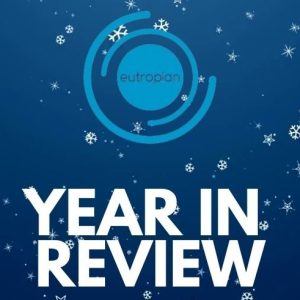
Has it really been that long? Well, apparently, it has. Seven whole years have gone by since we began working on cooperating for urban justice. We grew with each project, developed unique sets of skills and experiences, and expanded our team. What an amazing ride it’s been, so quite naturally, celebrations were in order! Our team from Rome and Budapest descended upon the Austrian capital to discuss and plan new projects, initiatives and undertakings.
Well, alright… Full disclosure: we probably spent more time enjoying each other’s company than working – but in our defence, it had been quite a while since we last saw each other in person due to a certain pandemic we prefer not to name. So we made up for the lost time in style, and a few too many slices of Sachertorte!
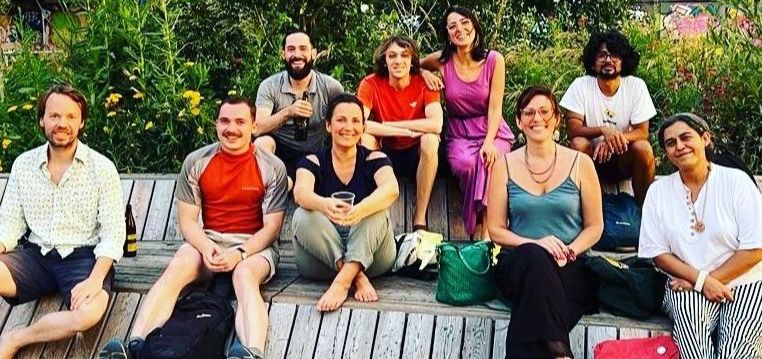

The Generative Commons Living Lab was an H2020 funded project, aimed to assist commons initiatives through research and know-how. As project partner, Eutropian supported the creation of unique resources produced to aid commons initiatives. The tools we created are still available for use and viewing:
The gE.CO Toolkits: researched based tools providing initiatives with the resources necessary to launch and maintain longevity.
The gE.CO Toolbox: a collection of online software services that allow communities to take advantage of free to use technologies.
The gE.CO Map and database: an online resource displaying initiatives throughout Europe while the database provides much needed information and a detailed account of initiatives from across the continent.
The gE.CO museum: an online resource that collects, connects and describes, through three thematic itineraries, the spread of generative commons throughout Europe
It was quite the endeavour, yet it proved to be worth the effort. Months of hard work resulted in the launch of a brand new platform. Solidarity City is now in full swing, bringing you the stories of initiatives that shape our communities, with a particular focus on Vienna as it’s starting point. Solidarity City has been designed as your go-to platform to discover initiatives that focus on social inclusion, fair employment, participation, sustainable food systems, ethical consumption and responsible tourism. Head on over and check out some high quality content.
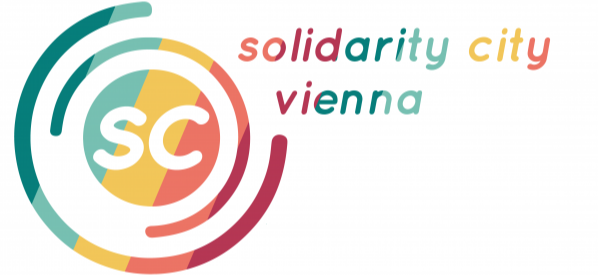

AGORA is an exchange project that deploys and adopts creative governance instruments for public administrations in the Danube region. We’ve been developing tools and communicating research results as the project comes to an end. The year started off with a partner meeting in Sofia, where we visited the local pilot project site, conducted interviews and created this zoom-in on the city of Sofia and the Toplocentrala.
“From wealthy to healthy cities” was the title of the congress, which invited participants to reflect on the possible ways of building a future focused on solidarity and well-being. The Brussels Capital Region was a suitable location for the event thanks to its ‘Shifting Economy’ strategy. Eutropian’s Jorge Mosquera joined the event on behalf of Eutropian and our partners in the project to disseminate research findings. Read more on our experience at the conference here.

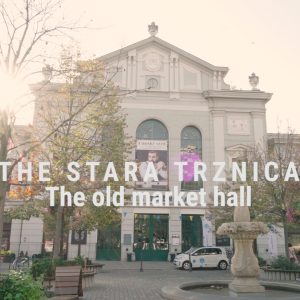
We’ve been working on the Open Heritage project over the years, in various capacities. For instance, we had created a series of case studies accompanied by documentary films, accessible in our viewing room. This year saw even more output, exchanges and the publication of results from the project. Here’s an overview of what we’ve been up to with the Open Heritage project.
Daniela Patti and Levente Polyak travelled to Ghent with the OpenHeritage network to explore community-run monasteries, cultural venues in churches and convents to be turned into co-housing projects – and of course, Europe-wide policies for the adaptive reuse of heritage spaces. They also attended and took part in the Open Heritage Policy Conference the next day.

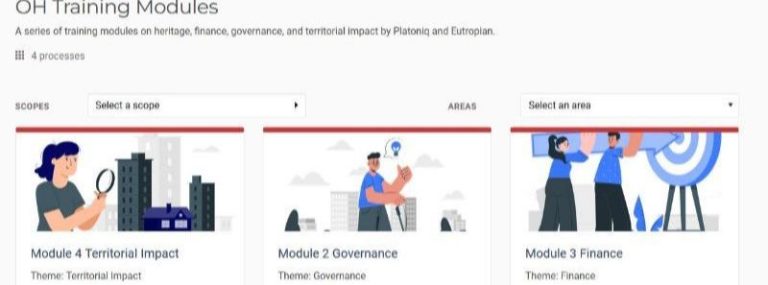
The positive feedback we received from participants on the relevance and quality of the online training program prompted us to use some of the materials on which the OH Training was based, to create a series of e-learning videos focusing on the four main aspects of adaptive heritage reuse. Read more and access the videos here!
Towards the end of this year, The OpenHeritage project consortium met up one last time in Newcastle, UK to for a final meeting. The project formally ends in 2022and cooperation between consortium members will continue in future projects. Read more here.
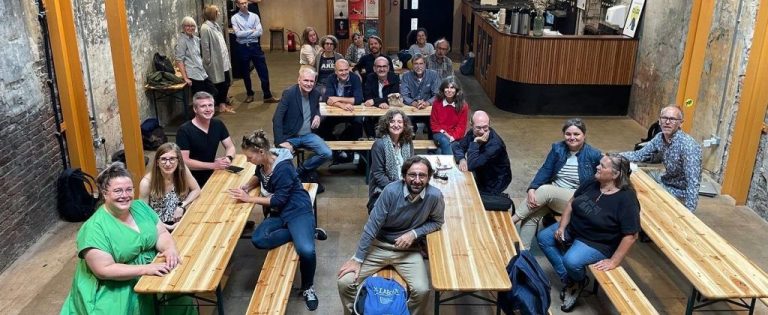
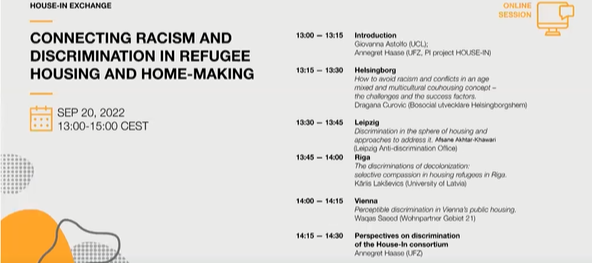
House-In is another project we’re active in, funded by JPI Urban Europe. The project focuses on challenges of housing-integration for migrant newcomers in European cities. While the House-In project was already ongoing when the war broke out in Ukraine, the partners found it essential to react to this new situation, given that it offers a new perspective and puts forth challenges to questions of housing and discrimination. So Eutropian co-hosted and co-organized a series of exchanges on the subject matter. The workshop on the topic of migrants’ access to housing can be accessed here; the exchanges on connecting racism and discrimination in refugee housing and home-making can be accessed here.
Leipzig was host to the final meeting of the JPI Urban Europe project. Partners discussed past events of the project, what the outcomes are, and what activities they’d hope to resume with in the future. In addition to planned project meetings, excursions to various locations in Leipzig were also organized. Read more here.
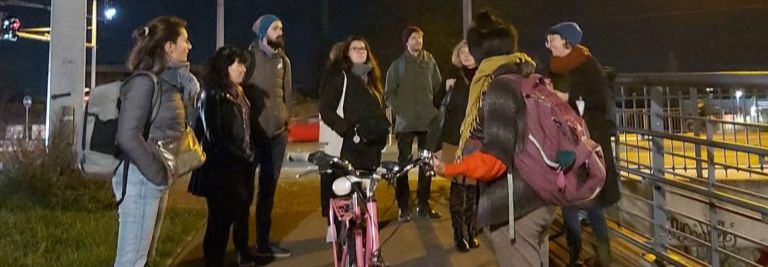

EUARENAS is an H202 project that investigates the ways in which social movements, coupled with local government reform initiatives, manifest themselves in local-level experiments and create momentum for political change. The project promotes inclusive and participatory forms of governance.
It’s been a busy 2022 for our colleagues working on the project, given that Eutropian is involved in WP3 (case study research), WP4 (piloting) and WP5 (foresight). Read more on what we’ve been up to and the current status of the project, in our blog post.
Eutropian team members descended upon Reggio Emilia in May, to discover the culture and social history of the region, take part in a deliberative democracy workshop on participative tools and of course… to make some tortellini! The workshops, discussions and exchanges took place as part of the EUARENAS project Eutropian is a partner in.

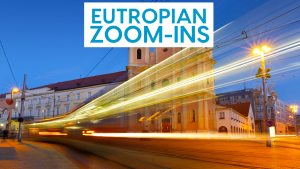
Over the years, we’ve visited numerous cities and sites through the projects we’ve worked on. During our visits, we not only collaborated with our partners, but also utilized the opportunity to gather the stories of the initiatives, cities and communities we had the privilege of meeting and spending time with. We now have a database filled with interviews, photographs, anecdotes, data, information and everything in between.
So we present to you Eutropian Zoom-ins, where we’ll be “zooming in” on the cities and communities that are partners in the projects we’re working on, or have already been involved with.
Go ahead… Feel free to take a stroll through Eutropian’s cities, and make sure to check in regularly for updates.
Here are some snippets of other activities we’ve been a part of this past year:
We opened and closed the year with the commons. This Autumn we concluded the URBACT-UIA Transfer Mechanism network CO4CITIES that brought the commons concept into municipal policies in three Eastern-Central European cities, Budapest, Cluj-Napoca and Gdańsk. Based on Turin’s Urban Innovative Actions project CO-CITY, the CO4CITIES project aimed at transferring a set of legislative tools and formats to the recipient cities. Eutropian’s Levente Polyak was coordinating knowledge exchange between the city in the role of a Lead Expert.
What better way to get to know the city than walking in the autumn sunshine on a guided tour with a fantastic group of experts on urban regeneration, social and collaborative housing, green and public spaces? Eutropian organised a liveability tour for a cheerful group of 30 urban planners from Holland who came to learn about the city’s regeneration and housing trends.
| Cookie | Duration | Description |
|---|---|---|
| cookielawinfo-checkbox-analytics | 11 months | This cookie is set by GDPR Cookie Consent plugin. The cookie is used to store the user consent for the cookies in the category "Analytics". |
| cookielawinfo-checkbox-functional | 11 months | The cookie is set by GDPR cookie consent to record the user consent for the cookies in the category "Functional". |
| cookielawinfo-checkbox-necessary | 11 months | This cookie is set by GDPR Cookie Consent plugin. The cookies is used to store the user consent for the cookies in the category "Necessary". |
| cookielawinfo-checkbox-others | 11 months | This cookie is set by GDPR Cookie Consent plugin. The cookie is used to store the user consent for the cookies in the category "Other. |
| cookielawinfo-checkbox-performance | 11 months | This cookie is set by GDPR Cookie Consent plugin. The cookie is used to store the user consent for the cookies in the category "Performance". |
| viewed_cookie_policy | 11 months | The cookie is set by the GDPR Cookie Consent plugin and is used to store whether or not user has consented to the use of cookies. It does not store any personal data. |
